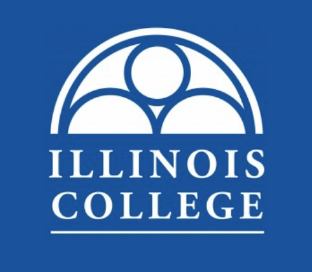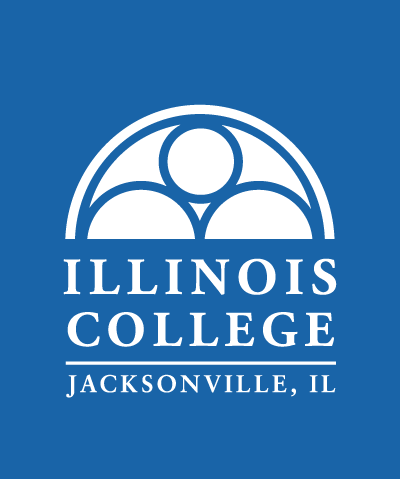Parents & Families Information
A Message from the Disability Resources Coordinator...
First and foremost, welcome to Illinois College Disability Resources! We are committed to creating a successful community of inclusive excellence as we prepare students to live, learn, and work among people who experience the world in fundamentally different ways.
For students with documented disabilities, it is the goal of the college to provide an environment that encourages equal access and participation to its various programs through a variety of resources and accommodations.
If your child has had an IEP or a 504 plan in high school, you’ve been able to play a role in the process. You’ve had access to the people who are providing supports and resources. And you’ve been able to monitor how well those supports are being implemented.
College is a bit of a change from that, starting with the fact that there are no IEPs or special education in college. For some parents, that can be hard to adjust to at first. This guide will highlight the key things to know about college disability resources and how they differ from high school.
We hope you find the following information helpful as your student transitions to life as an Illinois College student!
Colleges don't have the same legal obligations as high schools.
IDEA or the Individuals with Disabilities Education Act is a federal law that guarantees all children with disabilities are entitled to a free and appropriate education in the least restrictive environment. IDEA requires public schools to determine and provide what is most appropriate for a child’s education. At the K-12 level, schools are required to seek out and identify students with disabilities and then acquire testing for documentation. IDEA is about success.
Post-secondary institutions are required to follow federal civil rights law, including Section 504 of the Rehabilitation Act of 1973 and the Americans with Disabilities Amendments. These laws were designed to ensure that colleges and universities are free from discrimination in their recruitment, admission, and treatment of students. These laws require higher education institutions to ensure that all programs, resources, and/or facilities are accessible to or usable by students with disabilities.
While K-12 schools have a duty to identify students with disabilities, colleges and universities do not. It is the responsibility of the student to self-identify at the post-secondary level. In order for a student to receive accommodations, they must register with Disability Resources as a student with disabilities.
To summarize, education and laws in the K-12 setting are about success while education and laws at the post-secondary level are about creating access.
Your child must register as a student with disabilities to get accommodations.
The process of applying for accommodations happens separately from the college application process. It usually begins after your child has been accepted and has enrolled at the college they want to attend.
In order to get accommodations in college, your child needs to register as a student with disabilities. This happens with the disability resources office, not the admissions office. In other words, students must choose to self-identify to Disability Resources.
Participants will not get accommodations by simply writing about their issues in their college application or providing a copy of their IEP or evaluation during the application process. Admissions offices typically won’t look at these things before admitting a student. Under the ADA, they’re not allowed to accept or request any information about a student’s disabilities.
In order to ensure that a student receives academic accommodations, they must first set up a meeting with the Disability Resources Coordinator. Students will be asked to complete a Request for Resources Application and provide appropriate documentation that verifies their specific qualifying disability or disabilities at their first appointment with Disability Resources.
Through the interactive interview process, the Disability Resources Coordinator and the student will identify the need for reasonable accommodations to overcome the academic barriers they may face. Students who have provided appropriate documentation will receive an Accommodation Letter. This letter will be distributed to the student's instructors and the student will be given a copy of this letter each semester. The student is then responsible for having a conversation with their instructors regarding how the listed accommodations will be implemented in the course.
Who will manage my child's educational resources at Illinois College?
Like all Illinois College students, students with disabilities are expected to take responsibility for their own education. A component of this expectation is the continuing process of learning how to make decisions and advocate for one’s self, particularly in regards to one’s disability and related accommodations.
Although support and information is provided by the Disability Resources Coordinator, as well as other faculty and staff with whom the student consults, the expectation is that the student obtain and use information, use appropriate resources, and follow Illinois College policies and procedures in a timely manner.
How has my role as a parent changed?
At the post-secondary level, both parents and students experience a transition. A parent’s role shifts to a subtle hand of guidance when it comes to the process involved in the student’s education.
Encourage the student to take responsibility for academic concerns and limitations. Both the parent(s) and student should acknowledge the disability and the limitations that stem from it. This will allow the student to identify areas in which they should consider accommodations to level the playing field. It will also make it easier for the student to convey their requests for accommodations to instructors or anyone from whom they may seek assistance.
Encourage the student to register with Disability Resources where they will be coached on how to proceed in obtaining reasonable accommodations.
Another big change for parents is that they previously had access to their child’s records and could participate in the accommodation process. Parents previously had the role of advocating for their child. At the post-secondary level, parents no longer have access to a student’s records without the student’s written consent. Students now advocate for themselves in regard to their education.
Resources for Students
Center for Academic Excellence
- 1-on-1 academic coaching and advising
- Coordinate peer tutoring appointment
- Work on study skills development
- TRIO Student Support Services and Staff
- College retention and degree completion program centered on academic, personal, social, and career support
- TRIO program staff members provide support and guidance to program participants from their 1st year of college through graduation
- Help with any stage of the writing process
- Hosts special writing seminars
- Special tutoring for students with writing-related learning disabilities (by appointment)
- Assistance finding resources and information
- Assistance with citing sources
- Get advice or suggestions for improving presentations
- Get help to reduce anxiety or worry about public speaking
Professor Office Hours
- Posted on office door and in syllabus
- Can be made by appointment if needed due to schedule conflict
- Extra assistance from professors
- Match your interests and skills with career paths and graduate-level education
- Assistance with resume/job search/ interview questions
- Internship exploration
Chesley Health and Wellness Center
- Answer medical questions
- Immunizations
- Crisis intervention
- Therapy/counseling


